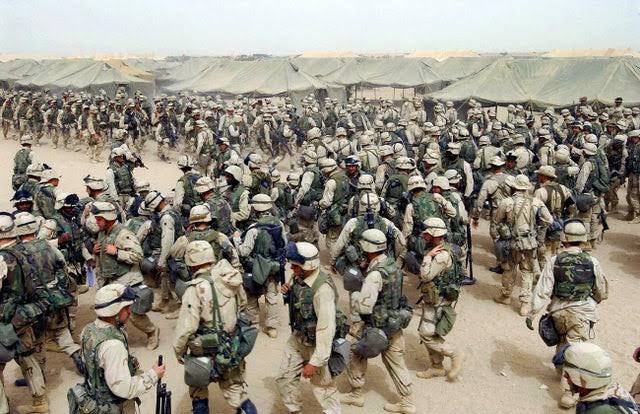20 yrs since start of Iraq War, scars from American self-righteousness remain

Twenty years have passed since the beginning of the Iraq War led by the United States. While the objective of overthrowing Saddam Hussein’s dictatorship was accomplished fairly quickly, the warfare dragged on due to resistance from anti-U.S. militants. The war’s cause was supposed to be the removal of weapons of mass destruction, but despite extensive searches, they were never found.
The war also shook the international cooperation system. French and German allies criticized the unilateralism and deepened the division with the United Kingdom, Japan and Eastern Europe, which supported Washington. Anti-war protests held across the globe indicated a loss of confidence in the United States.
Blinded by Iraq, the reconstruction of Afghanistan stalled, which allowed the resurgence of the Islamic fundamentalist group Taliban, and American troops were forced to withdraw. It was a war branded as a “failure” both at home in the U.S. and abroad.
The war also greatly changed the global balance of power. American influence particularly in the Middle East has significantly waned. The U.S.’ hostile attitude toward Islam and how Washington forced democratization stirred people’s anti-American sentiment.
China has increased its presence in the region to replace the waning United States. This was symbolized by Beijing mediating reconciliation between U.S.-friendly Saudi Arabia and Iran, which is at odds with the U.S.
The most significant issue that the Iraq War underscored was the self-righteousness of a superpower.
It’s believed that Iraq was targeted by the U.S. to avenge the humiliation it faced for allowing an attack on the country’s nerve center on 9/11.
Washington fabricated the grounds for the use of force and turned its back on international public opinion, bulldozing forward with the logic of power. The adverse effects of this action were obvious.
If superpowers, which should lead in the pursuit of peace and legal compliance, were to hold the right of life and death of smaller countries as they wished, we would have a dog-eat-dog world without rules.
Political unrest continues in Iraq today due to sectarian conflict and the rise of extremism. Some 2,500 American troops remain stationed there, and the U.S.-led coalition forces frequently carry out air strikes against extremist militants.
The current administration of President Joe Biden has made clear its position of prioritizing diplomacy over the military, but no verification has been conducted so that the failed war will not be repeated.
The United States is not the only superpower that behaves in ways that show no regard for others. The blatant act of tyranny by Russia to invade its neighbor Ukraine is intolerable. China’s authoritative approach over its interests also is a major concern.
Supervision by the international community is indispensable to hold down a major power’s out-of-control behavior. Japan, too, should not blindly follow the U.S., but form a relationship that allows Tokyo to have a direct say with Washington.



